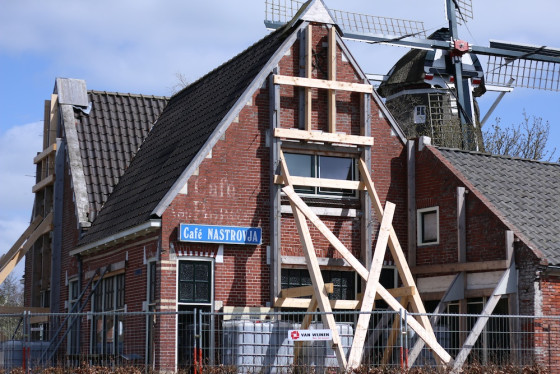Oil firms tried to influence government on Groningen gas: NRC


Shell, ExxonMobil and their joint venture NAM tried to influence a government decision on extracting natural gas from under Groningen province in 2012 and 2013, despite warnings from the mine inspectorate SODM, the NRC reported at the weekend.
In 2013, a record volume of gas was extracted in Groningen, despite the inspectors’ warning that production should be lowered as quickly and by as much as was realistic. The warning followed the heaviest earthquake to date, in Huizinge in 2012.
However, the then-economic affairs minister Henk Kamp set the inspectors’ concerns to one side and allowed gas extraction to continue to record levels, the paper said.
It bases its claim on 300 pages of confidential documents from the Maatschap Groningen, the organisation made up of NAM, Shell,ExxonMobil and state energy company EBN together with senior civil servants.
The group met on a regular basis to discuss government decisions on gas, and communication strategy.
The NRC says the minutes of the meetings show how closely the government and private sector worked together, keeping each other briefed on relevant political developments and attempting to steer decisions in their favour.
In 2012, the mining inspectorate called for the gas taps to be turned down because of the risk of more severe quakes and the committee’s members were aware of this before ministers, the NRC said.
80% of the homes in this village are being demolished
However, members of the Maatschap Groningen tried to temper the inspectorate’s recommendations, saying that it had ‘drawn far reaching conclusions too quickly’ and that these were ‘not shared by others’, the paper said.
Evidence
By mid January 2013, the oil firms were prepared to accept that gas extraction could lead to earthquakes 10 times as strong as earlier thought, but said that the ‘evidence did not support’ the advice to reduce gas extraction.
Despite SODM’s refusal to budge on its findings, Kamp said he wanted more research to be carried out before taking a decision. In 2013, 53.8 billion cubic metres was pumped up from under the province, the highest amount since 1981, partly due to the very cold winter.
The government has since ordered a parliamentary inquiry into the exploitation of the Groningen gas fields, which are now being wound down because of quakes and the impact on locals.
The economic affairs ministry declined to comment on the newspaper reports ahead of the parliamentary inquiry.
NAM told broadcaster NOS its focus had been on ensuring there would be enough gas to meet needs during the winter. Shell told the NRC that everyone involved in the gas industry, including government representatives, were part of the Maatschap Groningen.
Quakes
More than 1,000 quakes of up to 3.6 on the Richter scale have hit the province since 1986. So far, over 126,000 reports of damage caused by the quakes have been made to an official government institute set up to process claims and over €1.15 billion has been allocated to home owners and others to pay for damage.
The new government also has minister with specific responsibility for sorting out compensation for people whose property has been damaged.
Mines minister Hans Vijlbrief said in early April that the government will press ahead with its plans to stop production by 2023 in order the guarantee the safety of people living in the province. The Groningen fields, he said, are the ‘ultimate remedy’ if the supply of gas for hospitals and private households dries up.
Critics say the decision is incomprehensible given the uncertainty of energy supplies following the Russian invasion of Ukraine and the decision to phase out the use of Russian energy.
Thank you for donating to DutchNews.nl.
We could not provide the Dutch News service, and keep it free of charge, without the generous support of our readers. Your donations allow us to report on issues you tell us matter, and provide you with a summary of the most important Dutch news each day.
Make a donation